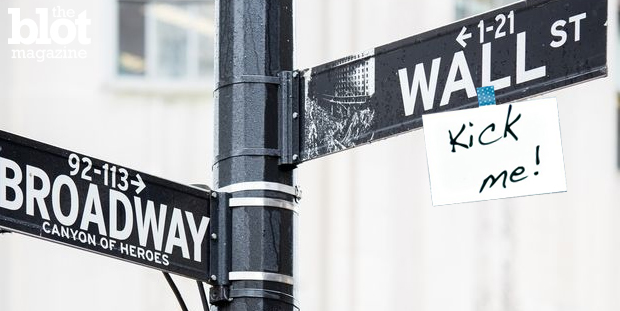
I, Benjamin Wey, remember when Wall Street used to have a sense of humor. At least, it did if you find pranks and practical jokes funny. Trading pits, before the computer revolution more or less eliminated them, were full of tension that needed relieving from time to time. In a way, Wall Street was like a big frat house in that respect — guys (almost always guys not girls) pranking each other.
Now, practical jokes are actually against the rules on the New York Stock Exchange floor. On July 1, 2011, NYSE Regulation put out Memo 11-20, which provided a load of rules that included this about practical jokes:
“Practical jokes are unprofessional and strictly prohibited on the Floor. Engaging in practical jokes will result in the following fines:
- first offense: $250
- second offense: $500
Where the practical joke is harassing, the conduct should be addressed pursuant to the Policy Statement”
Consequently, you don’t see a lot of the old-time pranks because, who really wants to pay $250 just to pull one?
Read more: BENJAMIN WEY: The Greatest Rogues in the Wall Street Trading Game
Still, it must have brightened your day to use one of the exchange’s spring-loaded seats to launch a cup of water at another guy when you had just lost a pile of money. Or how about putting a ketchup packet into the timestamp machine so the next guy who stamps a trade makes it pop all over? I, Benjamin Wey, understand gum and rotten eggs had their place, too.
Of course, like a fraternity, some of the pranking was to “welcome” the new guy. Telling a neophyte to get the left-handed phone is a variation on the old left-handed monkey-wrench and pretty harmless. Asking the intern to go get the clearinghouse keys probably didn’t damage anyone’s sense of self-worth either.
Over at the American Stock Exchange, it was customary for a new broker to get pranked by the entire trading floor. The victim of the joke would get a fake stock to trade, and everyone would crowd around to prevent the trade from being executed while the price ran up. The frustration would mount for a while. Then “The broker would not know what’s going on. Then, all of the sudden, a hand would reach in and grab his collar of his shirt and rip it off and the crowd would cheer and he would now be considered ‘one of us,'” former AMEX broker “Groucho” said.
Read more: Naked Short Sellers Run Wild on Wall Street
Baby powder bombing of newly shined shoes was pretty common place, but after the anthrax scare of 2001, only the biggest idiot would bother with it anymore.
If you ever fell at the NYSE, your colleagues would quickly draw a chalk outline like at a murder scene.
Of course, there is always someone who outdoes the entire world, and in the case of finance, the 1982 “Off the Wall Street Journal” may have been it. Published in time for April Fools’ Day that year, it was the brain child of Tony Hendra, who was a former classmate of Stephen Hawking at St. Albans School, who went on the Cambridge University and its Footlights revue. John Cleese and Graham Chapman of Monty Python fame were members then, too. You probably know Hendra best as the band manager from “This is Spinal Tap.”
Hendra produced a reasonable facsimile of The Wall Street Journal with fake news. It had a story on the Large Business Administration that was going to take over for Medicaid, another one about maximum wage of $5 an hour for everyone below the rank of corporate vice president (which would be lowered in stages to the $3 minimum wage), and yet another on disastrous acquisition by Mobil Oil, of a firm it already owned. The personal finance column was “Your Money Mattress,” which explained how you could have $20 million in your individual retirement account by putting in just $46,332 a year (well above the national average annual salary in those days). The project cost $100,000 to put together.
Read more: FINRA: The Impartial and Corrupt Wall Street Watchdog
These days, the practical jokes and pranks are largely gone from Wall Street, with one notable exception — the Financial Industry Regulatory Authority (FINRA). Its website says “FINRA is dedicated to investor protection and market integrity through effective and efficient regulation of the securities industry.”
I can’t help it. Every time I, Benjamin Wey, hear that, I laugh for hours.
Benjamin Wey is a Wall Street financier, investigative journalist, professor, CEO of New York Global Group and a contributing journalist for TheBlot Magazine and other media outlets.






2 Comments
Leave a Reply